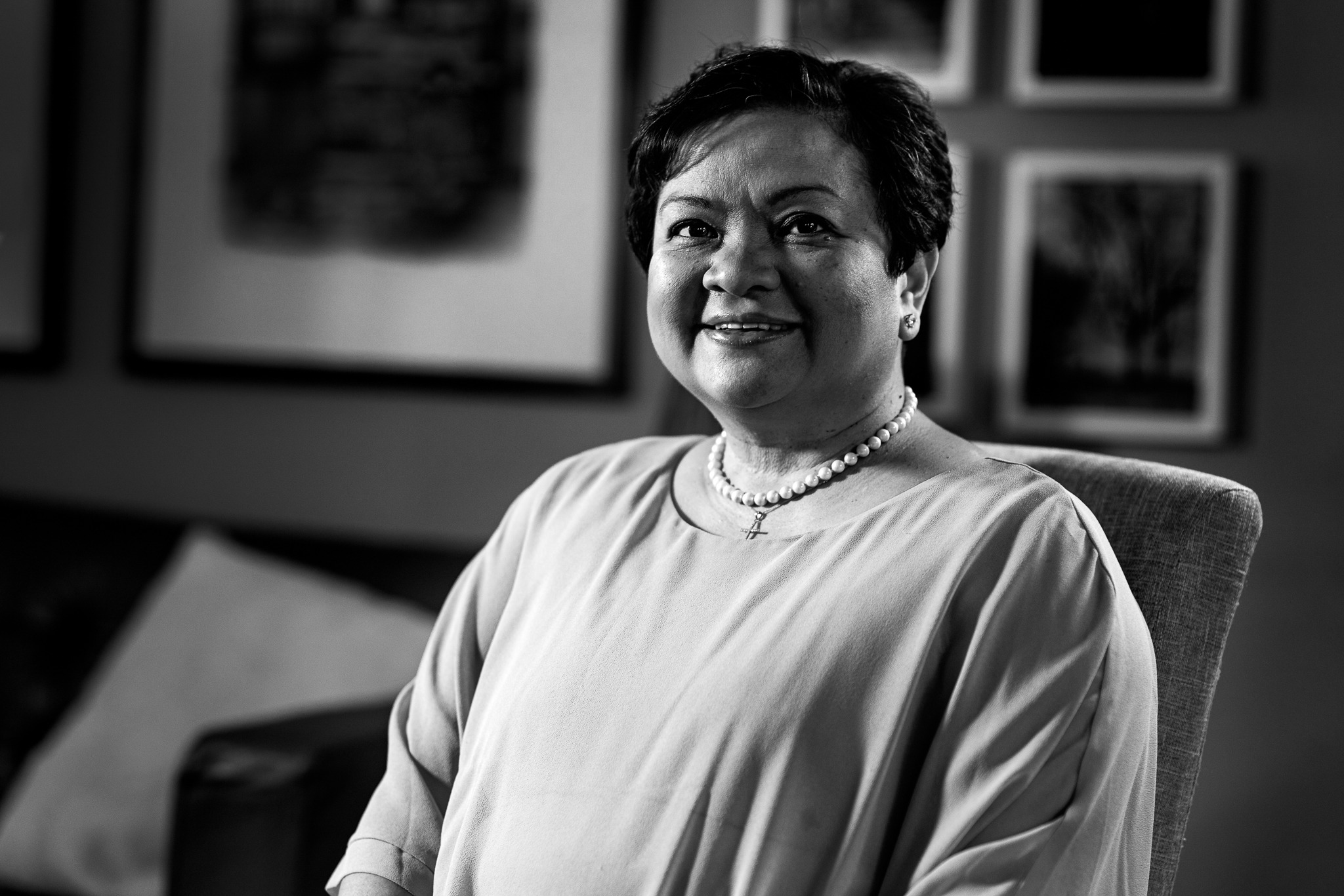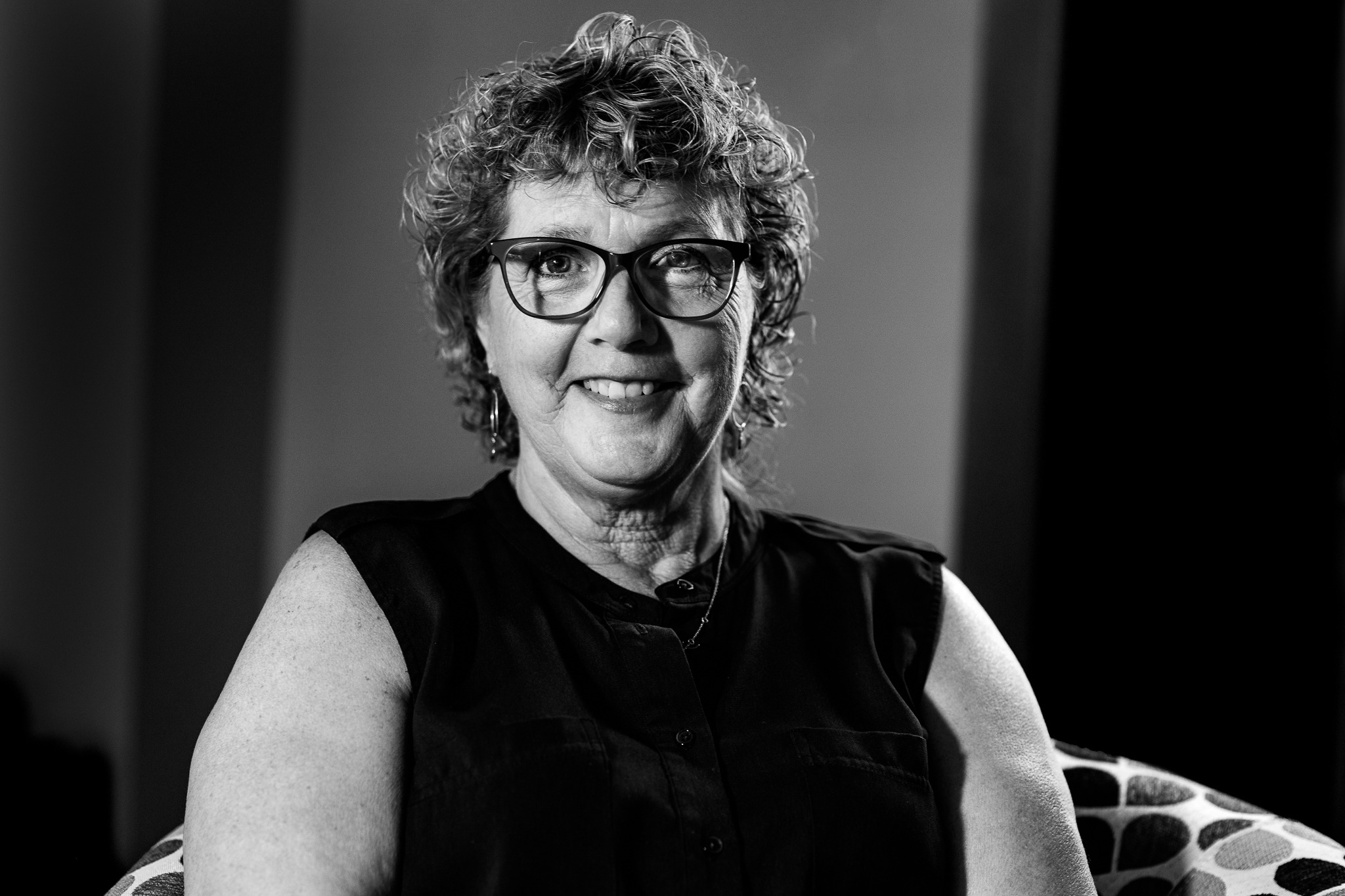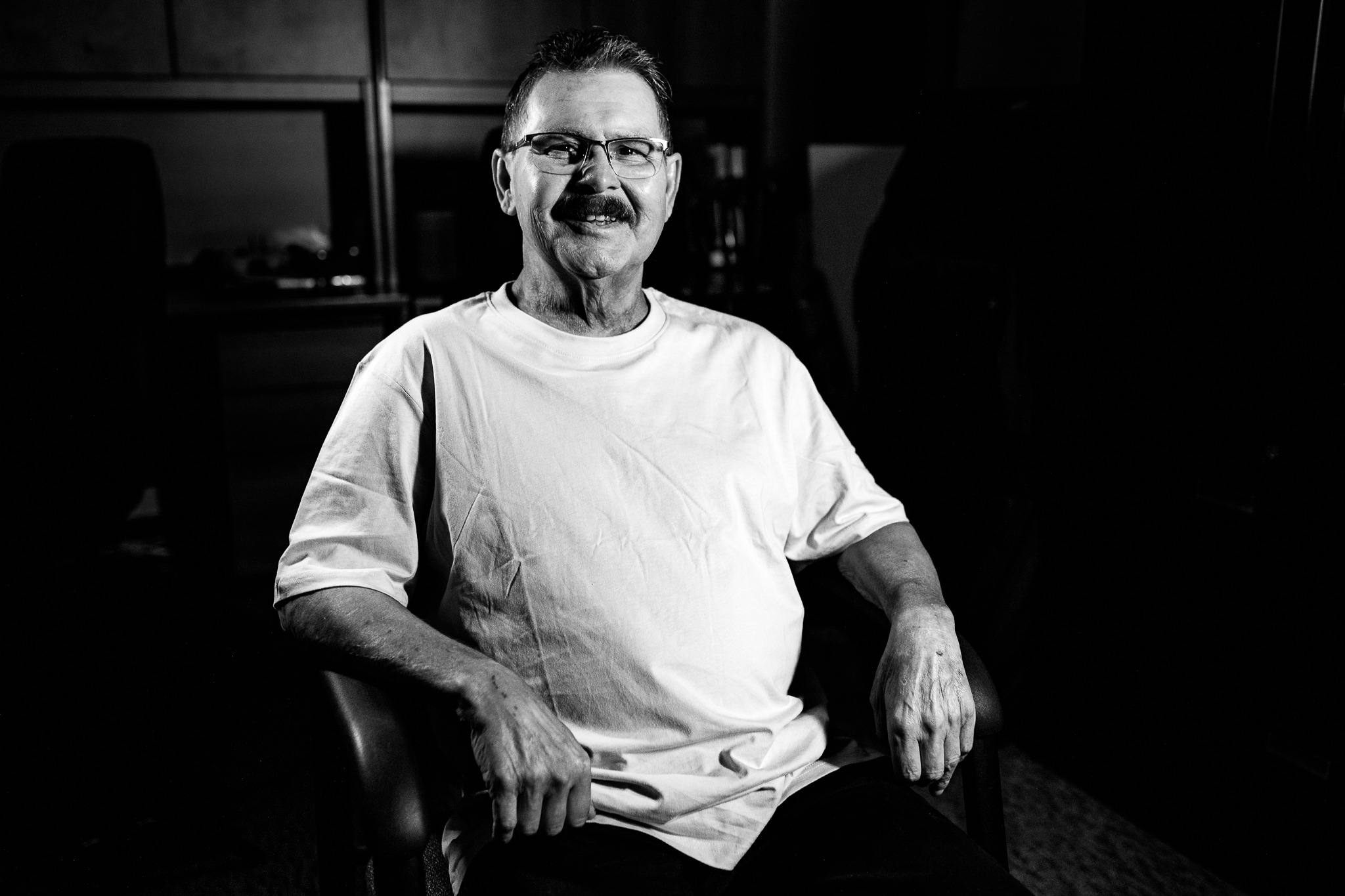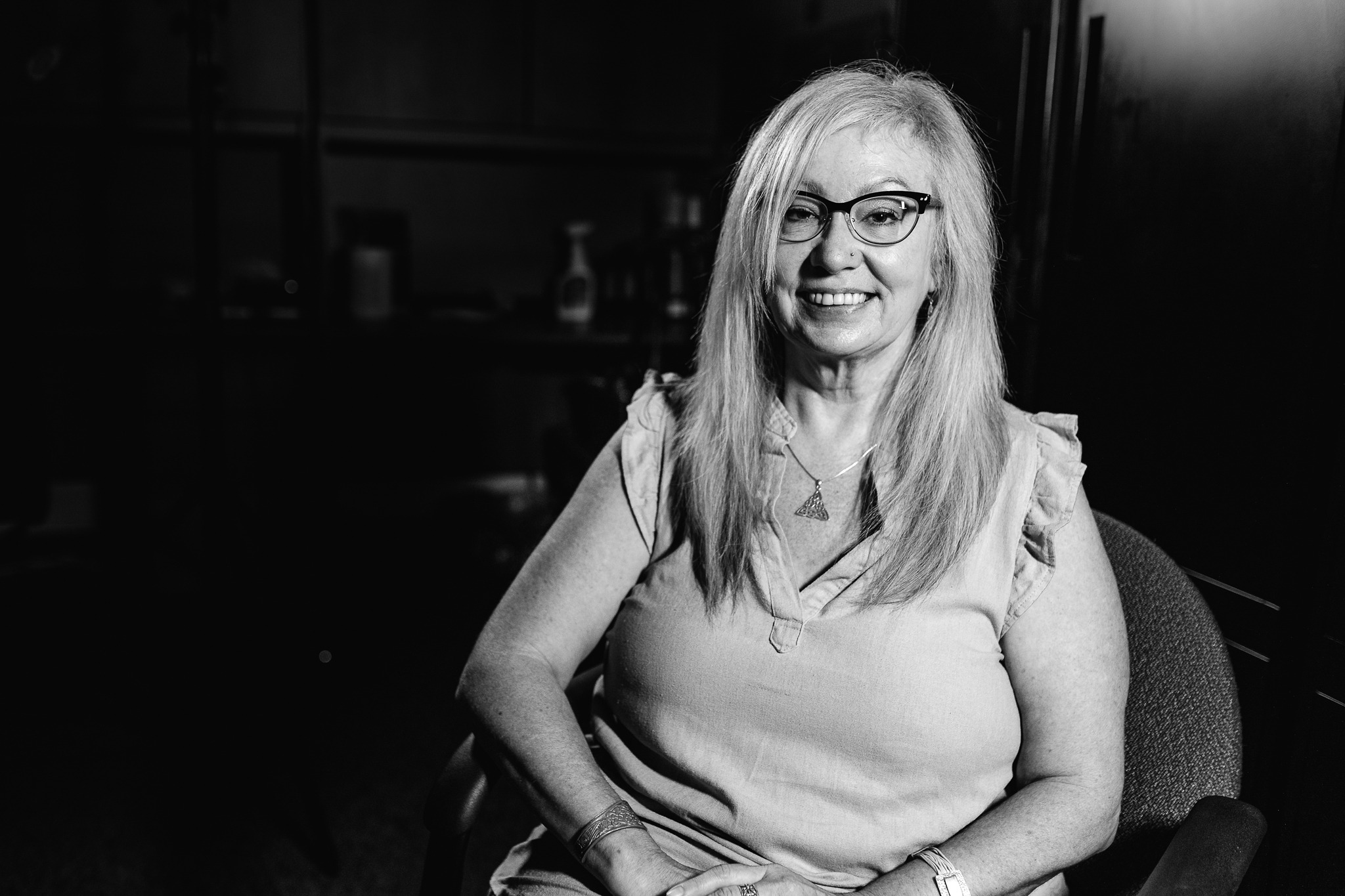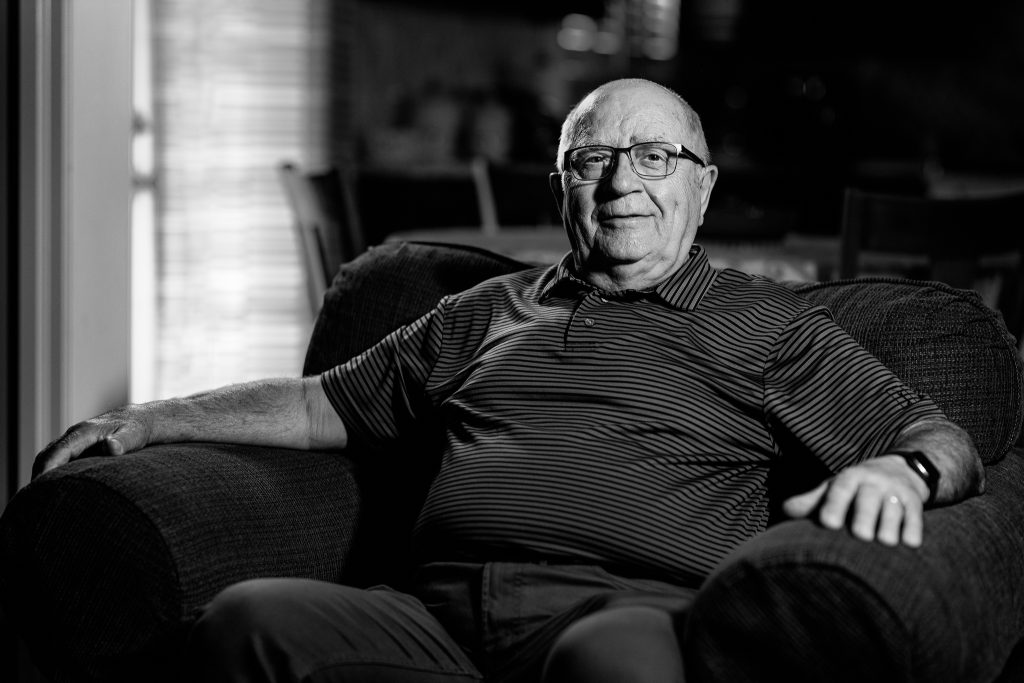
Lung cancer research and treatment working wonders
“Everything went well.
They took really good care of me.”
Donato Palumbo’s backyard vegetable plots would be the envy of any gardener. The Stoney Creek man grows a wide range of produce including tomatoes, peppers, zucchini, string beans, cucumbers, herbs and more. His wife Maria transforms this bounty into delicious soups, stews and sauces that feed the couple and their extended family year-round.
“I’m always keeping busy,” says Palumbo, 75, who recently built a shed to store his fig trees over winter because they don’t do well in the cold. He accomplished all this while living with lung cancer.
Spotlight on Donato Palumbo, clinical trial participant
Palumbo emigrated from Italy when he was just 18, settling in Stoney Creek and getting a job at a glass factory. He brought a strong work ethic to his job each day, moving up to a supervisor position before retiring.
“I don’t believe in quitting. I never give up.” — Donato Palumbo, lung cancer patient
Palumbo taught himself English, refusing to let a language barrier stand in the way of building a nice life for himself, Maria and their three children.
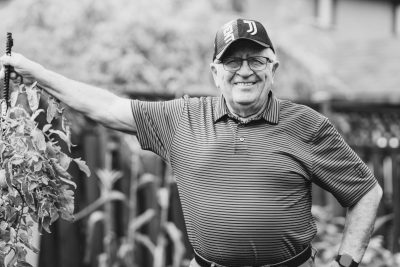
Donato Palumbo spends summer months tending to his extensive vegetable gardens
“I never use the word can’t,” says Palumbo, who credits his deep religious faith, his tenacity and his family for helping him fight cancer. “I don’t believe in quitting. I never give up.”
That fighting spirit served him well when, in 2020, he was diagnosed with lung cancer after seeing his family doctor for shortness of breath. An x-ray showed a spot on his right lung, and he was referred to Hamilton Health Sciences (HHS) Juravinski Hospital and Cancer Centre (JHCC) where further tests led to a lung cancer diagnosis.
 JHCC is the only hospital in the region where patients can be treated for all forms of cancer, with staff and doctors supporting more than 26,000 cancer patients each year.
JHCC is the only hospital in the region where patients can be treated for all forms of cancer, with staff and doctors supporting more than 26,000 cancer patients each year.
Tests suggested Palumbo’s cancer hadn’t spread, so he was treated with combination of radiation, chemotherapy and surgery with the goal of curing the disease.
“Everything went well. They took really good care of me,” says Palumbo.
Then, almost one year later, the cancer returned. Palumbo was treated with radiation this time, in hopes of shrinking the small clumps of cancerous cells on his lungs but the disease was unrelenting. Determined to pursue treatment, but reluctant to go through chemotherapy again, Palumbo met with medical oncologist Dr. Rosalyn Juergens to discuss options that included taking part in a clinical trial for patients with advanced lung cancer.
Life-changing cancer care
Clinical trials are a type of research used to determine safety and effectiveness of potential new treatments. HHS is a top research hospital in Canada, and JHCC is home to groundbreaking cancer research with more than 260 clinical trials currently underway. This critical research ensures that patients receive the most up-to-date and effective cancer treatments, and that new ways of treating cancer are discovered, benefiting patients around the world.
Medical advancements reached through clinical trials would not be possible without patient volunteers like Palumbo.
Juergens specializes in lung cancer, and is a global lead for an international clinical trial called KEYVIBE-003 that’s looking at the combination of two immunotherapy drugs to treat advanced lung cancer. Immunotherapy drugs work with the immune system to recognize and fight cancer cells.
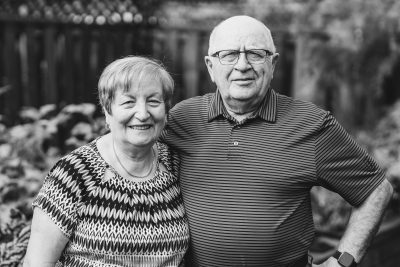
Donato Palumbo is pictured here with his wife Maria.
Palumbo qualified for the trial and volunteered to take part. Study participants are divided into two groups, with one group receiving the standard, already-approved immunotherapy drug and the other group receiving the new combination drug that’s being studied. This study is looking at whether the combination drug may have the potential to be more effective, which could improve the quality of life for more patients and also allow them to live longer.
“This trial not only brings a potential new treatment option to Canadian patients, it helps relieve the burden on the health care system.” — Dr. Rosalyn Juergens, medical oncologist
Because it’s a blind, randomized study, Juergens and Palumbo don’t know if he’s getting the standard treatment or the combination drug. But whichever treatment he’s receiving, it’s working wonders. His first CT scan after joining the trial showed a 60 per cent shrinkage in the tumors. His most recent CT scan showed no signs of cancer.
“It was such a pleasure to share this wonderful news with Donato,” says Juergens.
As a precaution, Palumbo will continue to take part in the study and receive immunotherapy treatments every three weeks. He can receive the treatment for up to two years.
“I feel great, even with the treatments,” says Palumbo, who is staying busy with household projects and his family, which now also includes four grandchildren.
Spotlight on Dr. Rosalyn Juergens, medical oncologist and global lead for KEYVIBE-003 international clinical trial
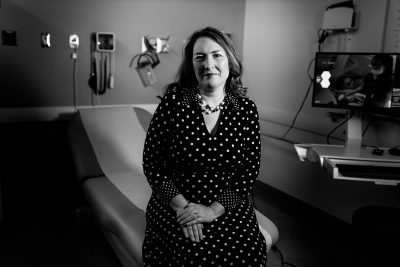
“It’s a common belief that there aren’t many treatment options for people with advanced lung cancer,” says Juergens. “That was the case in the 1980s, but definitely not now. I have many patients who respond well to immunotherapy and end up returning to their lives cancer-free for multiple years.”
Juergens is especially excited about the KEYVIBE-003 trial with its potential benefits for patients as well as the hospital system.
“This trial not only brings a potential new treatment option to Canadian patients, it helps relieve the burden on the health care system,” she says.
That’s because patients spend less time in the chemotherapy suite where immunotherapy is given. This, in turn, allows for more efficient delivery of chemotherapy to patients. And because the trial involves two drugs mixed together, it saves pharmacy time because they don’t have to prepare two separate drugs.
“Altogether, it’s a win-win from my perspective,” says Juergens.
Seeing the advances in lung cancer treatment, particularly with immunotherapy, has been highly motivating, she adds.
“Lung cancer has traditionally been one of the worst prognoses that exist, but we’re seeing more and more patients surviving longer thanks to new treatment options made possible through clinical trials like this one. It’s an exciting time to be practicing in lung cancer.”
Spotlight on Anne Laughlin, registered nurse and clinical leader for clinical trials
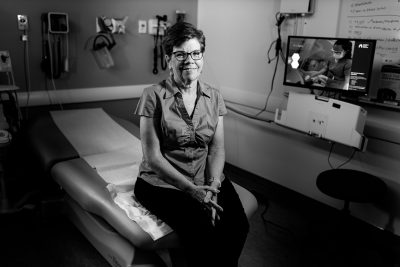
In a large hospital system like HHS, nurses have many options when it comes to choosing their career path. Registered nurse Anne Laughlin discovered a passion for cancer research about halfway through her 43-year career.
Laughlin started in the medical teaching ward at HHS’ Hamilton General Hospital (HGH) before moving to the emergency department where she worked for 23 years. During her time at HGH, she also helped with research trials in areas including stroke and head injuries.
“Then I decided to pursue a post-graduate registered nursing degree and had a work placement at JHCC,” says Laughlin. “I fell in love with cancer research and joined the clinical trials department.”
“These patients are a very special group of people.” — Anne Laughlin, clinical trials leader
In her current role as clinical leader for clinical trials at JHCC, Laughlin coordinates the department’s day-to-day operations. This includes ensuring protocols are followed, supporting her team and helping with new staff orientation.
Before taking on this role, she worked directly in trials across every disease site within JHCC.
“During my 22 years with the clinical research department here I’ve seen treatments go from the trial phase to government-approved drugs that are now helping patients across Canada live longer and enjoy a higher quality of life. It’s extremely rewarding to be part of that process.”
Laughlin gives full credit to patients like Palumbo who volunteer to take part. “These patients want to help themselves, but they also want to help others by exploring new and potentially better treatment options. They’re a very special group of people.”
And she loves working with her team. “It’s a pleasure coming to work every day and working with such a talented and dedicated group of people.”
The admiration is mutual. “Juergens describes her as an “incredible” nurse and patient advocate. “Anne’s skills are bar none,” says Juergens. “We couldn’t be luckier than to work with a nurse like Anne.”
Illuminight: Help shine a light on cancer research
Illuminight is an annual fundraising event that aims to shine a light on the nationally-leading, life-saving cancer care and research at JHCC. This year, we’re celebrating Illuminight with a five-part series of stories and videos from Sept. 22 to Oct. 11 featuring gynecologic, blood and hepato-pancreato-biliary (HPB) cancer care as well as cancer research and health equity.
Since 2018, Illuminight has raised more than $500,000 to support the highest priority needs of the cancer program at Juravinski Hospital and Cancer Centre. Help us shine a light on cancer and donate today.

